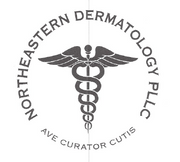
Skin conditions such as acne, eczema, and psoriasis are widespread and usually temporary. Some disorders, however, are not only painful or uncomfortable but may be signs of a deeper, more long-term problem. Here are some signs that it might be time to consult with a skin specialist about advice or treatment for systemic diseases.
How Systemic Diseases Affect the Skin
1. Hives
Hives, or urticaria, is a common skin rash usually resulting from an allergic reaction to certain foods, medications, or infections. In most cases, hives last no more than 24 hours. However, in some extreme cases, they can last from several days to six weeks. During that time, they appear as itchy, raised red welts in various sizes and shapes.
A skin specialist will usually recommend antihistamines to treat hives. These counteract naturally occurring histamines released by the body that provoke the symptoms of an allergic reaction. You may also have to undergo examinations or tests to determine the initial cause of the irritation.
2. Seborrheic Dermatitis

Seborrheic dermatitis is a form of chronic eczema which mainly affects oily sections of skin, such as the scalp, upper chest, upper back, and face. The most common symptoms are redness, scaly patches, and dandruff. In adolescents and adults, this condition typically doesn’t clear up on its own and will require professional treatment. For some, this condition can be a symptom of serious conditions such as Parkinson's disease or human immunodeficiency virus (HIV).
Dandruff shampoos may offer some relief, as well as gentle soaps to reduce oiliness. A skin specialist can also prescribe topical steroid creams formulated to strengthen and heal affected patches of skin. The best treatment for this condition is often a combination of two or more methods for rapid relief.
3. Acanthosis Nigricans
Acanthosis nigricans is characterized by thickened, dark, velvety patches of skin, usually in folds and creases on the body such as the groin, armpits, or neck. Several types of this condition have been identified. Type I may be a sign of adenocarcinoma, a form of cancer in the stomach or liver. Type II is generally associated with non-malignant endocrine dysfunction. Type III is the most common form and is typically seen in those suffering from obesity or developing diabetes.
This condition typically can’t be treated on its own since it manifests as a sign or symptom of more serious conditions. Instead, a skin specialist can diagnose the condition and may suggest further treatment from an endocrinologist.
If you’re in need of treatment and diagnosis of these or other skin conditions, turn to the skin specialists at Northeastern Dermatology. The experienced dermatologists at this local practice have provided expert care to patients throughout Rocky Mount, NC since 1980. They’ll provide treatments to ensure healthy skin and early detection of underlying conditions. Call (252) 281-2567 to schedule an appointment, or visit them online to learn how they can help.
About the Business
Have a question? Ask the experts!
Send your question

